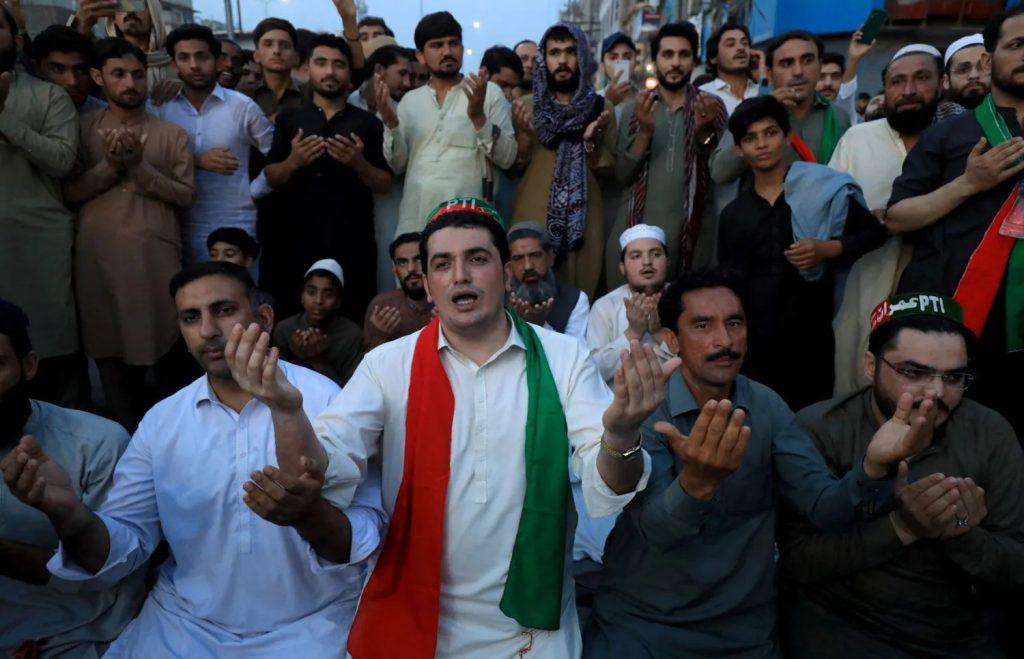A survey conducted by Ipsos Pakistan Pulse suggests that approximately 75% of Pakistanis have accepted the poll results. 7% of these express reluctance to do so, while 17% remain undecided.
Entitled “Acceptability of 2024 General Elections Results,” the survey highlights a correlation between age and acceptance of election results, indicating a higher propensity for acceptance among older individuals and rural residents. Residents of Sindh and Islamabad exhibit the lowest likelihood of accepting the election results.
According to the survey, approximately 67% of Pakistan Tehreek-i-Insaf (PTI) supporters are ready to accept the election outcome. 9% may reject it, while the remainder remain uncertain.
A significant majority of PML-N supporters, around 87%, are willing to accept the poll results. Merely 4% are likely to reject them.
1% of PPP supporters are expected to reject the poll results. 94% anticipate accepting them, leaving the remainder uncertain.
Similarly, 87% of Jamaat-i-Islami Pakistan (JIP) supporters are projected to accept the election results. While 7% are likely to reject them.
Regarding individuals who do not intend to cast their votes, the survey suggests that 56% will accept the election results, 13% will reject them, and the remainder will remain uncertain.
The electoral process encountered disruptions attributed to violence perpetrated by armed factions and the contentious decision to suspend mobile phone services as well as delays in poll results, which was widely condemned as an instance of “political engineering.”
Various international actors have responded to these developments with concern and scrutiny.
United States
The US Department of State has expressed its anticipation for “timely, complete election results” from Pakistan. In a statement, it affirmed the United States’ readiness to collaborate with the forthcoming Pakistani government, irrespective of political affiliation, to promote mutual interests.
Furthermore, the Department of State aligned itself with the observations of credible international and local election monitors. It highlighted perceived limitations on freedoms of expression, association, and peaceful assembly throughout the electoral process. It explicitly condemned instances of electoral violence and voiced apprehension regarding allegations of interference in the electoral procedures, emphasizing the imperative for thorough investigations into claims of interference or fraud.
United Kingdom
The United Kingdom has expressed “serious concerns” regarding the fairness and inclusivity of the recently conducted elections in Pakistan. UK Foreign Secretary David Cameron conveyed unease over the fact that all political parties did not afford the opportunity to formally contest the elections. He cited the utilization of legal mechanisms to obstruct the participation of certain political leaders.
Additionally, Cameron highlighted restrictions on internet access and identified delays and irregularities in the reporting process. He emphasized the importance of upholding fundamental human rights, including unrestricted access to information and adherence to the rule of law, urging Pakistani authorities to uphold these principles.
Cameron underscored the necessity for the new government to be accountable to the populace it serves. Moreover, he emphasized the importance of representing the interests of all Pakistani citizens and communities with fairness and justice.
European Union
The European Union has commended the ongoing “commitment to democracy” demonstrated by the Pakistani populace. However, the EU expressed regret over the absence of a fair electoral environment. The organization cited the inability of certain political actors to participate in the elections, constraints on freedom of assembly and expression both online and offline, limitations on internet accessibility, and allegations of significant interference in the electoral process, including the arrest of political activists.
In response, the EU has called upon Pakistani authorities to conduct thorough and prompt investigations into election irregularities.


